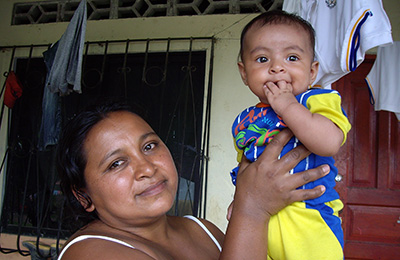Crisis de refugiados en Ecuador

enero 04, 2012
The refugees constitute a particularly vulnerable group, suffering high levels of poverty and unemployment while also facing the trauma of having to leave their homes and livelihoods only to find rejection and exclusion. Many Ecuadorians regard their new neighbors as competitors for already scare and overextended social services.The arrival en masse of school age refugee children also has a heavy impact on the educational system and only exacerbates its deficiencies. It is in the Ecuadorian provinces near the Colombian border that Educo has worked with UNHCR in 2012 to reinforce the network of schools and ensure that refugee children can integrate in the education system.
Throughout of intervention we have worked on building or renovating 15 preschool and primary schools, cultural centers or sports complexes, and 21 centers have received the equipment and material necessary for their proper functioning. Moreover, 500 children from particularly vulnerable refugee families have received school uniforms and supplies so that they can continue their studies. The program has also developed sessions to raise the awareness of families, students, teachers and other members of the educational community with respect to issues such as inclusive education, gender equity, citizenry and solidarity. These activities were not only open to the refugee population, but also to local communities, in the interest promoting harmonious co-existence. The organization of social, cultural and sports activities has also favored the integration of the refugees, especially youths who are often stigmatized as being responsible for violence and insecurity.
The coordinated effort of Educo and UNHCR has made it possible for 100,000 children from 0 to 12 years old to access education or enjoy improved learning conditions.
